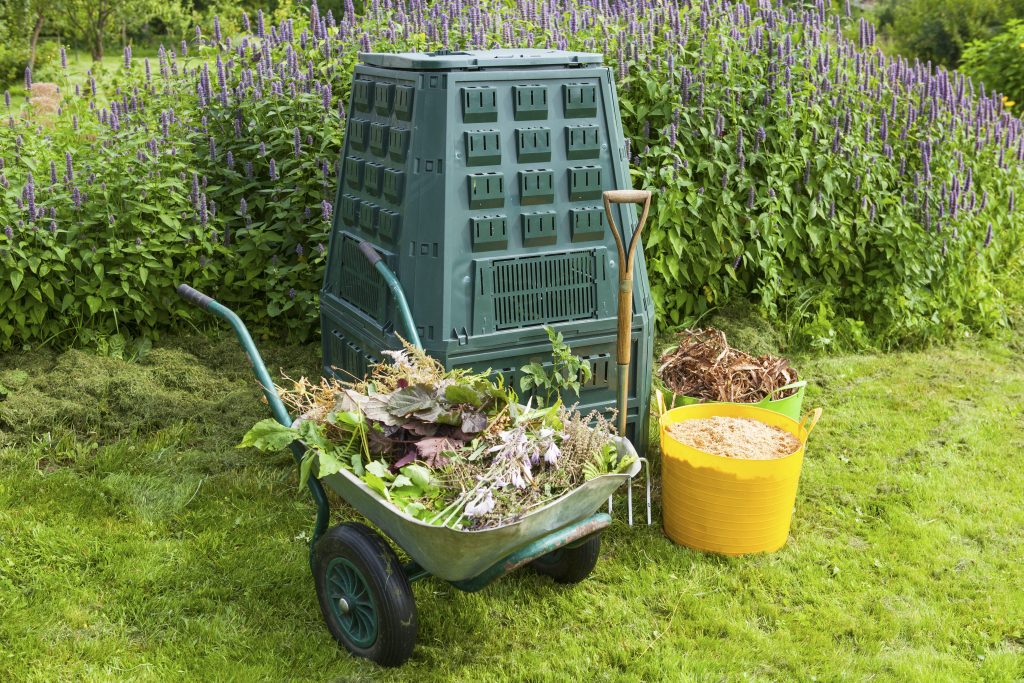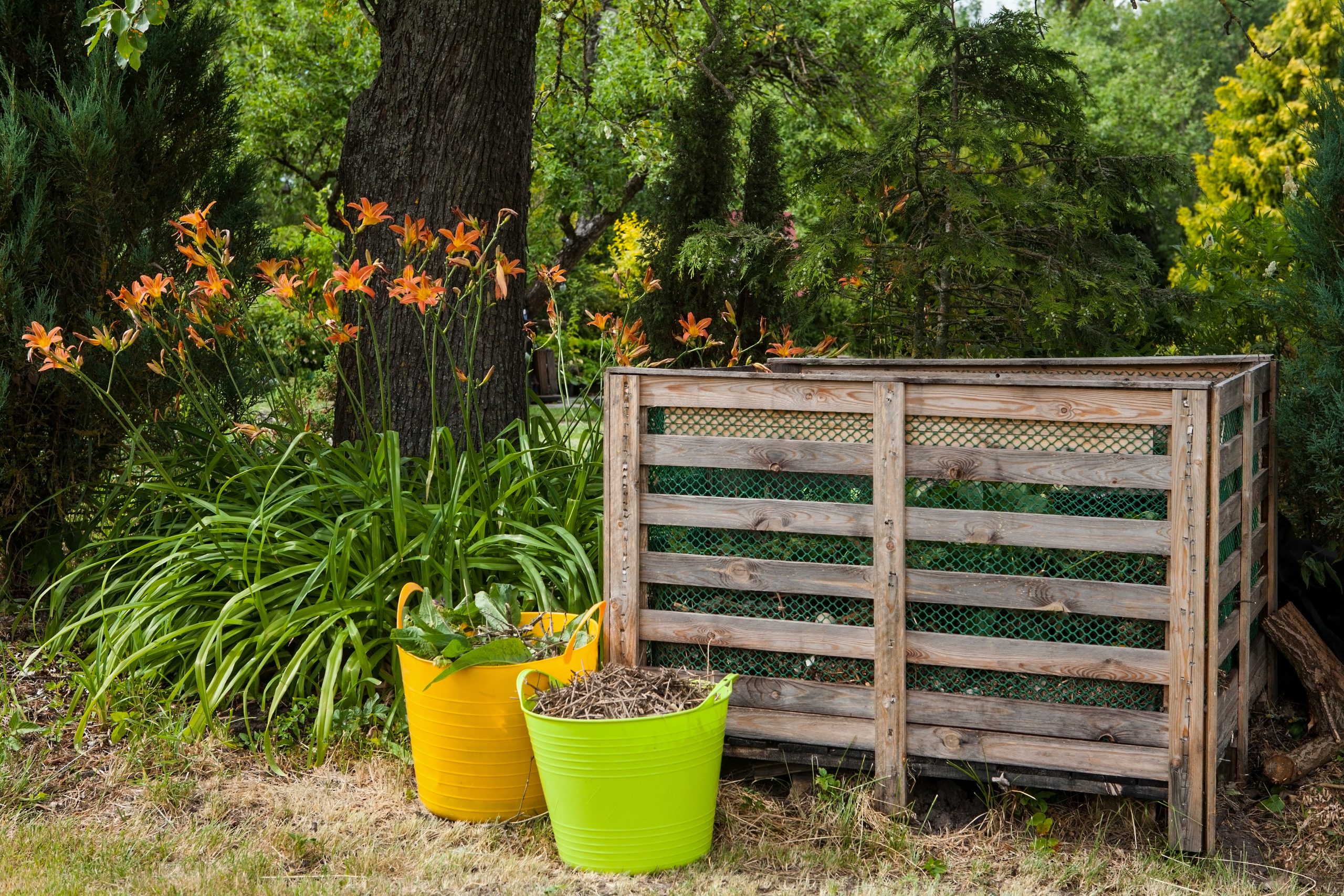Composting is a great way to dispose of your food scraps without harming the environment – and if you have a garden, it can provide you with amazing fertilizer for your plants!
This article is for those who are considering giving composting a try but aren’t quite sure yet about how it can benefit them or how to do it. However, even somebody who’s never thought of composting before – or, on the other hand, an experienced composting enthusiast – will hopefully learn something new.
4 reasons why you should give composting a try
In case you’re not quite convinced yet, there are many different reasons why you may want to take a shot at composting – we’ve put together four of our favorites.
1. Reduce landfill waste
Nowadays, we send a lot of waste to the landfill, much of which could be prevented. A substantial portion of that is food waste and food scraps, which could easily be composted to avoid piling up more trash in landfills.
The biggest problem with landfills is our overreliance on them – even for waste which could very well be recycled or composted. By composting your food waste (and other materials which are compostable, such as cardboard, cork, dust or bedding from herbivorous pets), you’re reducing your reliance on this waste disposal method.
2. Lower your carbon footprint
There’s another issue associated with sending food waste to the landfill – it doesn’t present optimum conditions for food to decompose. While on a compost, food would rot quickly and turn into fertilizer with sufficient access to oxygen, the conditions are not the same in a landfill.
As scraps lack access to oxygen, they emit methane (a greenhouse gas 84 times more potent in the short run than CO2) and contribute to climate change. By composting, you can substantially lower your carbon footprint.
3. The perfect way to fertilize your garden
Compost is the perfect natural fertilizer which enriches the soil in your garden and provides nutrients to any plants you’re growing. The form this fertilizer takes depends on your composting method – most composts produce solid matter, while a vermicomposter (worm bin) creates liquid fertilizer.
4. You can do it from anywhere
You may be thinking of composting as something you can only do if you have a large garden with a secluded corner where you could start a compost pile. However, with all the options available nowadays, that couldn’t be further from the truth.
You can compost no matter where you live – a terrace or balcony is more than sufficient and you could compost comfortably even without one, in a closed-in flat. While you may have fewer options when it comes to the method, there isn’t much difference in the end.
Composting options for everyone

Compost pile
The easiest way to compost – and what most of us often imagine when we hear the word composting – is a simple compost pile. It’s easy, free and requires little construction. It’s also easy to turn the compost and air pockets run through the pile, speeding up the process.
However, as you can probably guess, it’s not the ideal solution if you only have a small garden (or no garden at all) and it’s not the most aesthetically pleasing if your garden is otherwise perfectly manicured.
Tumblers
A good way to both hide your compost and take care of the turning easily is to invest in a tumbler. These are a good solution for small gardens because of their smaller size and unobtrusive appearance. They can be a little more expensive ($50 to $200) but you could also DIY one if you’re on a budget.
However, you do need to add soil to the mix to keep the composting process going and harvesting compost as fertilizer is a little more complicated.
Open bins
This is a popular compromise between a compost pile and a small bin. They look a lot neater but can be built just from a few planks of wood or wire fencing. The bin is open from the top, which makes for easy turning and harvesting, but it still neatly contains all the compost without spilling over.
However, you’ll have to invest a little time and money to build the bins, which can be a reason to opt for another method.
Closed bins
If you want your compost completely hidden from sight or live in an apartment with a balcony or terrace, closed bins may be the choice for you. Some bins are made with an open bottom, which makes harvesting a little easier, while others are closed for use in an apartment.
These would probably be too small for a large garden, but the small volume makes it ideal for compact living. The cost can vary between $50 and $300, depending on the bin you choose.
Vermicomposters (aka worm bins)
Perhaps the best method for apartments or indoor composting are worm bins – they are neat, tidy, don’t smell and make composting possible any time of the year. The price also isn’t half bad, as they start at $20 (although worms are usually sold separately).
They may not be ideal for big gardens, as the volume is quite restricted – but that’s all the better for apartment living. Additionally, you do need to consider the worms, keep bedding most and refrain from overfeeding them, to keep the compost healthy (although you can easily learn all that during the first few weeks).
Bokashi bins
Lastly, you can also give bokashi bins a try! The method is a little different, as you can add some food scraps which usually can’t be composted (e.g. dairy or meat). The bins are sealed for 10-12 days, with basic daily maintenance, and produce an acidic pre-compost mixture which can then be added to your regular compost.
This is a good addition to your composting if you find that you have a lot of food scraps from animal-based foods – but it does require more work.
Some methods of composting may work better for some people than others – and it’s not just all about your living situation. Pick whatever method sounds like the best option now and if you change your mind, you can always try a different method down the line!
















